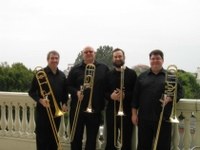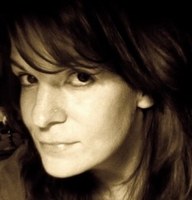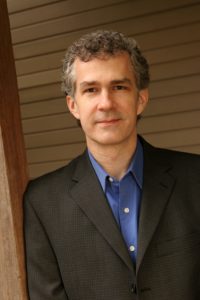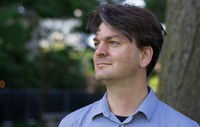
It’s that time of year again, when UofL’s Comstock Concert Hall fills with the sounds of some of the country’s best new music.

The School of Music presents its annual New Music Festival Nov. 6-10, with a slate of renowned guest artists such as composers David Dzubay and Ryan Ingebritsen, and the chamber music group Elysian Trombone Consort.
The festival will include the premier of “Sacred Art,” a collaborative piece by Boston playwright Heidi Decker and UofL professor of composition Steve Rouse, during the Faculty Chamber Music concert Nov. 6. The two will also give a presentation about their collaboration before the concert at 7 p.m. in which Decker will perform selections of her monologues.

Dzubay, the festival’s headlining composer, is professor of music, chair of the composition department and director of the New Music Ensemble at the Indiana University Jacobs School of Music in Bloomington. He’s received numerous top fellowships and his music has been performed by orchestras, ensembles and soloists in the U.S., Europe, Canada, Mexico and Asia.
Dzubay took time out of his schedule to talk to UofL News about his work, why the New Music Festival is special and what audiences can expect.
UofL News: We’ll have the chance to hear your work throughout the festival, including electronic and computer music on Tuesday, “Light Fantastick” for orchestra on Wednesday, contemporary choir music on Thursday and “Symphony No. 2” for wind ensemble on Friday. That’s such a diverse selection. What is the unifying element amongst all these pieces? What makes them all, different as they are, distinctly David Dzubay?
Dzubay: I suppose I’m the unifying element, as composer, but the works scheduled span a huge range of over 25 years, starting with the early string quartet, “Threnody,” “HyPer MIX,” an electroacoustic piece written with my good friend James Aikman in college, and a brass fanfare I wrote on New Year’s eve to play with my best friend back in Portland out our front door at midnight(!); from there we work toward the present with middle pieces like “Footprints,” “Kukulkan III” and the choral works, up to the very recent “Symphony No. 2” for band. One thing in common with all these pieces musically is a focus on a central melodic thread leading a listener through the work. Many of the pieces also have a certain rhythmic energy and a rich harmonic palette.

UofL News: What do you think is most exciting about the New Music Festival?
Dzubay: I think it is incredibly impressive and forward-looking for the whole School of Music to work together on a celebration of new music. This sends such an important message to the students about music being a living, creative art form.
UofL News: You’ll be teaching too, while you’re here. What lessons do you hope to leave our students with in your short stay?
Dzubay: Knowing the composition faculty at UofL, I am aware that the students regularly get solid advice about their works. Nevertheless, it is often interesting for students to get an outside perspective, even if it simply reinforces the message. I look forward to seeing and hearing what the UofL composers are up to.
UofL News: Anything else you’d like to share about the festival?

Dzubay: It is humbling to have this prestigious school invite me as guest to their festival. I have had an occasional, yet, long relationship with Louisville, including having my first professional recording done there when Lawrence Leighton Smith recorded Snake Alley with the Louisville Orchestra in 1995. I very much look forward to the week.
See the detailed schedule for all events, which are free and open to the public.
- Nov. 6, 8 p.m., Comstock Concert Hall Faculty Chamber Music
- Nov. 7, 8 p.m., Bird Recital Hall Electronic and Computer Music
- Nov. 8, 8 p.m., Comstock Concert Hall University Symphony Orchestra
- Nov. 9, 8 p.m., Comstock Concert Hall University Collegiate Chorale and Cardinal Singers
- Nov. 10, 8 p.m., Comstock Concert Hall University Wind Ensemble and New Music Ensemble

































